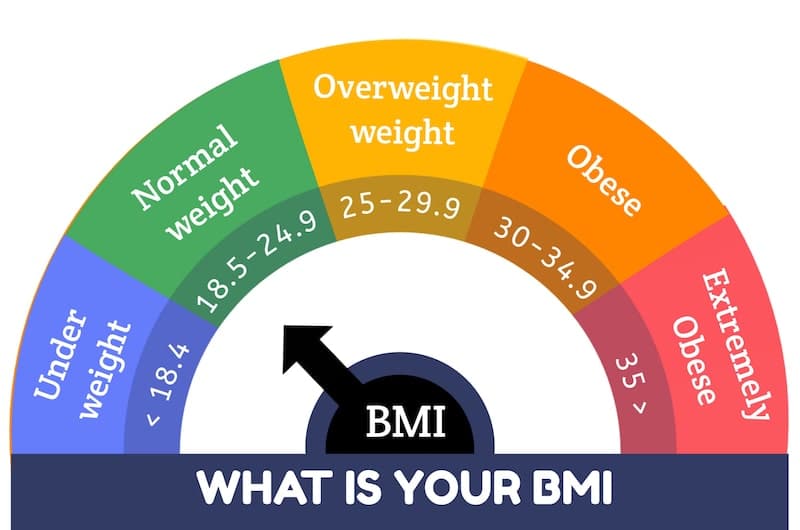Posted July 15, 2022 in Plastic Surgery, Preparing for Surgery
3 Minute Read:
It’s no secret that plastic surgery can create some of the most dramatic and stunning results in men’s and women’s appearances, and some of the most popular and effective transformations come from full body sculpting procedures like liposuction surgery, tummy tuck surgery, and Mommy Makeover surgery.
Each of these procedures involves removing fat from the body to give you a sleeker, more contoured aesthetic, and the best part is that the fat removed is largely stubborn fat that is resistant to diet and exercise. You know, the fat that just doesn’t seem to go away, no matter what you try.
However, plastic surgery can’t work complete miracles.
Even though fat is being extracted from your body with these procedures, you still need to be in good general health. And one of the simplest and most effective ways of determining a patient’s health is their BMI (body mass index).
Below, you will find information on BMI and its effect on plastic surgery procedures.
What Exactly Is BMI?
Your BMI is a measurement of the amount of body fat you have. It is based on the proportional relationship between your height and weight. Calculating your BMI is very simple. Essentially, this number helps to determine whether you are underweight, at a healthy weight, overweight, or obese.
Not only does knowing your BMI help you understand more about your general health, but it is also helpful in letting you know about your candidacy for plastic surgery.
How Does BMI Affect Plastic Surgery?
One of the most common misconceptions about body contouring procedures is that they can be used for weight loss.
Unfortunately, that just isn’t true.
While you will lose a few pounds, since fat is being extracted from the body, plastic surgery is not meant to be an easy way to lose weight. Instead, plastic surgery is about cosmetic corrections that are reflected on the outside of the body (even though much of the procedure occurs inside the body).
Because of this, patients who are severely overweight and obese are not ideal candidates for plastic surgery.
Knowing your BMI is extremely helpful when deciding what procedures you should (and can) undergo. One of the general requirements for any patient considering cosmetic surgery is that they should be at or near their goal weight.
This means that overweight and obese patients should undergo a rigorous diet and exercise program to bring their weight down before they can go under the knife for body sculpting.
There are several reasons for this.
Complications
Overweight and obese men and women have a weaker immune system, which means that they are more prone to complications during and after plastic surgery. In fact, a study performed by Johns Hopkins Medicine concluded that obese patients are 12 times more likely to experience complications with cosmetic surgery than patients who were at a healthy weight.
Some of these complications include increased pain and swelling and a higher chance for infection. Additionally, this weakened immune system can put more pressure on your vital organs, which can lead to serious health risks.
Issues With Recovery and Results
Patients with a high BMI tend to have much longer recovery periods than patients with a lower BMI. Additionally, body sculpting results tend to not be as effective for obese patients. That is because body contouring procedures like liposuction are just not able to get rid of all the fat that obese patients have, including in multiple areas of the body (you may remove fat from the abdomen but still have fat in other areas, which creates an unbalanced appearance).
So, for your plastic surgery, make sure that you are giving yourself and your procedure the best chances to look and feel the way you want!
Interested in Learning More?
To learn more about our body contouring procedures and how your weight contributes to the success of your surgery, please contact our office at (310) 205-3107 or schedule a personal consultation with Dr. Rey today to determine if you are a good candidate.

